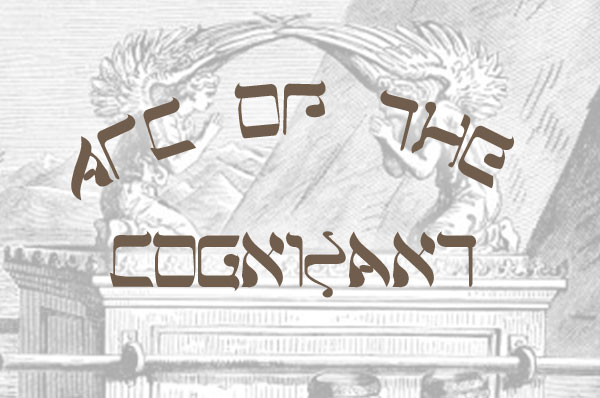Engineering change in others and ourselves, while spirit and matter wage war for our being
“Don’t let another day go by, without the magic touch, embracing you, revealing you…
Change your mind.” – Neil Young. Change your Mind.
It has become, almost without my noticing it, basic to my understanding of existence that matter and spirit are antitheses. They are “at war”.
The Austrian oracle/ clairvoyant/ mystic, Rudolf Steiner, endorsed a view that in materiality, in our fleshly incarnations, humans are dragged by “ahrimanic” and “luciferic” influences downward to selfish ego; he urged development of the selfless “I” that spiritual science could teach. In his understanding, matter is less evolved than spirit, and humanity must strive upward from materialization to spiritualization. It is, according to Steiner, the effect of evil technological and machine-driven materialism that brought us the 20th centuries’ atrocities.
A Jesuit mystic, Teilhard de Chardin, wrote that he had experienced a youthful revelation that Matter had called to him, as it called to all humans, to worship it and serve it. I am examining his assumption, looking for the possibility that Matter and Spirit are, neither one, our compass — and neither ought to be preferred.
Ancient Gnosticism was mistaken, I think, to elevate the spiritual over material in a hierarchy. Matter is not inferior — but it is not to be taken as “more real” than intangible things either. The matter/spirit war is a metaphor of a basic dilemma of being human.
The Persian Zoroaster posited that war between Ahura Mazda and Angra Mainyu, light and dark, was eternal, and some of his cosmogony bled into late-Judahite and proto-Christian consciousness, resulting in a picture of humanity as the battlefield between God and Satan. The last book of the Christian new testament is a Revelation of this war, and in the gospels, Jesus is tempted by Satan with the promise that all the kingdoms of the earth would be at his command if only he would worship Satan. The devil claims in the gospel of Luke that “authority” over all the earth’s political powers has been given to Satan.
That politics are “of the devil” seems to be indicated by this scriptural verse. I have been led by life experience to hold politics now in very low regard. Yet politics remains a passionate interest of mine, and I am challenged to say why that is so. Maybe because politics at its best might be a force for the betterment of the human condition? Yet in my lifetime that possibility – betterment through politics — has seemed to diminish.
It’s all about power, and for that reason politics cannot be separated from matter, since power in the material plane derives from control of matter. “Knowledge is power” was an epigram of Francis Bacon, the English philosopher of the “novum organon” (new order) at the dawn of the West’s new consciousness of science and technique; by following Bacon’s advice to get control of Matter by experimental science and technology, the West has risen to global dominion.
Before the new sciences of the West, however, we possessed a fundamental thought-formation cultural matrix called the Judeo-Christian, Greco-Roman heritage. The religious heritage runs even deeper in our consciousness than scientific consciousness. So also do the mystery teachings of pagan religion.
But to stay for a moment with modern science: our affluent technological culture produced a significant number of middle-class people enjoying a fair degree of liberty and security… and a world in peril. This is a wonderful world. This is an awful world.
I will say no more about the state of this, our world, than this — look around and ask if it needs some improvements. If you agree that yes, it needs betterment, read on.
I have written in these columns about the demand of our times for people who want to change the world for the better, to begin by changing themselves by a process of interior examination and self-alteration. I may have made that sound simple.
Self-change is not easy to accomplish. It is not a matter of willpower or simple decision, “From now on, I will be… and I will do…” Hasn’t worked for me. You?
Paul the Apostle wrote in a letter how he had intentions to do one thing but did its opposite, and that he determined not to do something and yet did exactly that thing. Change is not just you deciding to transform youself. Ah, that it were so easy!
Is it “the war between matter and spirit” that makes us unable to change ourselves easily? Is our intention to change always opposed by an intention not to change, because we like the way we are/ have become? Are the “better angels of our natures” in constant combat with the “demons within” who want us to fail?
I have also written in this column about “social engineering” as a great calamity for humans in history. The political powers who have ruled us in various times and places have occasionally been possessed of a ruthless self-righteousness that justified in their minds the exercise of extreme force to engineer human behavior by terror and slaughter. Trotsky, Stalin, Hitler, Mao, Savonarola, Robespierre, the ancient Spartans’ constitutional code, and the Roman Catholic Church, eradicating heretics in medieval papal lnquisitions, are examples that come to my mind with little prompting. These were types of social engineering at its hideously most effective. No amount of death by torture, judicial murder, mass execution, famine, or gulags of imprisonment/enslavement, was deemed too inhumane in the pursuit of the goal of the Improved Human, by these historic leaders.
Western Enlightenment, 18th-century secret societies like the Freemasons and the Illuminati expressed an intent to lead humanity to higher states of being and happiness by invisible guiding influences, or in other words, by their power-behind-the-throne machinations in politics. Thomas Jefferson, a founding father of the great republic that declared the right of humanity to Life, liberty, and pursuit of happiness, employed the language of social engineering when he spoke of the American Constitution “shaping enlightened men toward virtuous citizenship”.
Early socialists like Robert Owen, whom Marx called a “utopian,” believed that proper planning would produce the best society and perfected humans; Owenite experimental communes proliferated for awhile in England and America. France had its phalangeries.
B. F. Skinner in Walden Two and U. K. LeGuin in The Dispossessed wrote novels in the utopian vein to show how an engineered society could improve us. Such thinkers had small difficulty with the concept of controlling humans’ environment and mind-training to create (engineer) better societies. Dystopian novelists like Orwell and Huxley (1984 and Brave New World respectively) saw the perils in social engineering and wrote eloquently against it.
All of us engineer at least one person in our lives: if we are parents,we engineer our children by teaching.
Parenthood is a profound experience. It is also “religious.” How? Stay with me on a short tangent.
I am reading an absolutely fascinating, articulate, and deeply-insightful study of the West’s most-influential source of formation of our consciousness, the God (divine Father) of the Jewish and Christian traditions. The author is Jack Miles, a one-time Jesuit seminarian, and his book is God: a biography.
God is the ultimate in engineers. God made humans. We are in the “image of God.” From the start of the story, the literary character called Y’HW’H and ‘elohim and el is a composite. Humans wrote about God, and the Bible is a story with God as the protagonist, revealing early human consciousness. God is not a simple personality. Well, neither does any human lack a complicated interior – we all experience that humans are complex. I appreciate this more and more as I age, and as I watch my grandchild grow.
God, Miles shows in cogent fashion by making his own lucid translations of ancient Hebrew texts, is a personality with many contradictions and internal struggles. We humans are perfect images of that. God is both compassionate and arbitrary. Genesis is undeniably a revelation of this conflict. The voice that tells Job that Job understands nothing because he is not God, is the voice of a god we see in reality.
Bad things happen to good people. Reference Job’s tale: God lets awful things happen to Job because God makes a wager with “the satan.” Good things happen when God decides to make it so. If not, not. Why does God sometimes (often?) let unfairness prevail? …because that is the character of a God with self-contradictory inclinations. God got that way in biblical narration, fusing el and baal and yahweh.
There is no guarantee of justice or goodness in life. One of God’s names, Yahweh, means several things, but clearly the core is will-power. “I am/will be what-and-where I am/will be.” ( Hebrew, ehya-asher-ehya) Not love, not goodness, but Will, defines God.
If you dislike treating God as a literary character, fine, but I argue that if you read the holy scriptures with a translation untainted by moralist intention, you will see Miles’ point. God is not good by definition. God makes good when God chooses to. Is it any wonder that our minds do not have ultimate power to will that we “improve” ourselves?
Miles’ is conclusive about his assertion; in the Western Mind, a foundation consciousness of our arbitrary God generates self-contradictory behavior. End of tangent.
I stake a claim here to a thesis about good and evil: the human struggle to improve ourselves, become better in some sense we define for ourselves, is founded for Westerners on a religiously-grown, root consciousness, that our God in whose image we are made, is like us, unpredictable. God might want good for us, but might not always act that way. We are decent, compassionate people. We are ego-driven, power-seeking people. It is a beautiful world. It is an awful world.
Is there a war between all good and all evil, Light and Darkness? That is a metaphor only. There are not two realities, only one. God is one, but God is conflicted. We are also. Whether I improve myself by more exercise, better diet, taking courses in spiritual discipline, or a New Year’s resolution, there is no way I can be certain that, (1) the change is “an improvement” in any ultimate sense, as a cosmic Truth, or (2) that I will do the thing I resolve to do. Maybe I will succeed if God helps me. If not, I fail… In our politics, ordinary people acting as politicians are internally conflicted too. They are no better than we. Thus it is a deep truth that we get the government that we deserve. We are the leaders we give our power to.
Post-modern minds, sophisticated in our existential stance, must take the path of setting goals and striving for them — regardless of metaphysical knowledge of meaning or purpose in life. You have been born, you have to live: so make your own narrative, your own purpose, your own meaning. The story you tell yourself is what matters.
If that is an unsatisfactory resolution, then you are ready for mysticism. And that returns your mind to a state not at all new in human history. The Mystery-tradition has been around a long time. The Bible has many traces of the occult, as well as clear signs of priestcraft, theological abstraction, and political editing.
Mystery traditions were pagan, not Israelite, and the Bible’s writers tried to excise those traces from their texts of Torah and other books of the canon; Christianity followed suit. But one cannot escape the facts – magic, oracles, sorcery and demonology are not absent from scripture. Not very scientific and not very rational, but still – are we certain there is not some truth hidden (occluded, occult) in these metaphors?
In this era when a sense of impending and accelerating changes in our planet, our economies and technologies, might leave us feeling insecure and anxious, has Western science exhausted its good effects? Neo-pagans today embrace the esoteric. Can “return” to pagan or medieval astrology, kabbalah, alchemy or magick, work for us now? Does the East have spiritual truths to teach the West?
My subject for next column is, can we look to “old-fashioned” mystery-teachings to lead us forward? We’ve come through agnostic scientific materialism in the last 400 years. Do we keep going through that path, turn back, or synthesize the two traditions?
Charles Jeanes is a Nelson-based writer.


























Comments